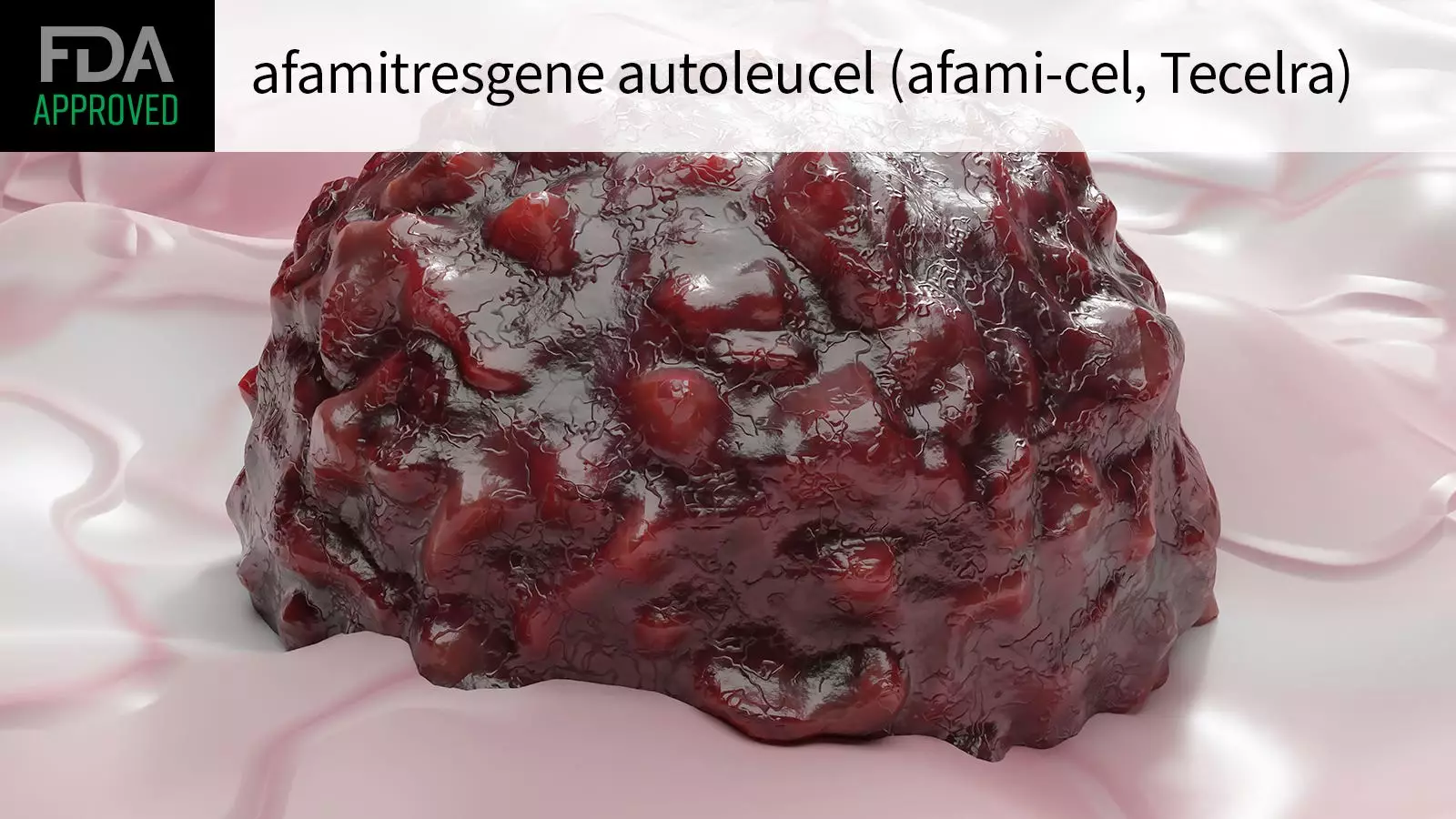In an essential advancement for cancer treatment, the FDA has granted accelerated approval to afamitresgene autoleucel (commercially known as Tecelra) for the treatment of advanced synovial sarcoma. This innovative therapy marks a significant milestone as it represents the first engineered cell therapy specifically indicated for a solid tumor. Designed as an autologous T-cell immunotherapy, afami-cel aims to supply an effective treatment option for adults with unresectable or metastatic disease who have not responded sufficiently to prior chemotherapy.
Synovial sarcoma is a rare and aggressive soft-tissue cancer that predominantly affects younger adults and often manifests in the extremities. The advent of afami-cel provides hope where traditional treatment methods have faltered. With the recent approval, it has become the first new therapeutic solution available for synovial sarcoma patients in over a decade, addressing a pressing need in oncology.
For patients to qualify for treatment with afami-cel, they must be HLA-A*02:01P, -A*02:02P, -A*02:03P, or -A*02:06P positive and have tumors express the MAGE-A4 antigen as determined by a companion diagnostic. This requirement showcases the precision medicine approach tailored to cancer immunotherapy, aiming to maximize the therapy’s effectiveness by focusing on specific biomarkers.
As noted by Peter Marks, MD, PhD, the director of the FDA’s Center for Biologics Evaluation and Research, the significance of this approval extends beyond the individual patient; it also illustrates a broader movement towards more personalized and targeted cancer therapies. The reliance on genetic profiling to identify suitable candidates serves as a critical step forward in making cancer treatments more strategic and refined.
The approval of afami-cel hinged on findings from the SPEARHEAD-1 trial’s cohort 1, which studied 44 patients with advanced synovial sarcoma. The results were encouraging, with an overall response rate of 43.2% and a complete response rate of 4.5%. Following treatment, the median duration of response lasted six months, and 39% of the responding patients sustained their response for a year or longer.
These results underscore the potential of afami-cel in transforming the management of a disease notorious for its poor prognosis. Traditional treatment strategies often involve multiple lines of therapy with disappointing outcomes, as evidenced by a mere 20% five-year survival rate among those diagnosed with metastatic disease. The introduction of afami-cel thus serves as a critical turning point for individuals suffering from this debilitating cancer.
While the therapeutic promise of afami-cel is evident, it comes with a requirement for careful monitoring due to its safety profile. Much like CAR T-cell therapies, afami-cel’s labeling includes a boxed warning for cytokine release syndrome (CRS), a potentially severe and life-threatening reaction. Clinical trials indicated that CRS occurred in 75% of treated individuals, often presenting with symptoms such as fever, hypotension, and tachycardia.
Management of CRS has been effective; treatment with tocilizumab was successful for 55% of those affected. However, the occurrence of CRS highlights the necessity for healthcare providers to be equipped to handle such adverse effects effectively.
Aside from CRS, patients undergoing treatment with afami-cel may experience other common adverse events, including fatigue, nausea, infections, and various gastrointestinal symptoms, all of which necessitate comprehensive patient management post-administration. Close monitoring for immune effector cell-associated neurotoxicity syndrome is also vital, albeit its presence was rare in trials.
The FDA’s approval of afamitresgene autoleucel represents a transformative moment in the fight against advanced synovial sarcoma. It not only offers a new therapeutic avenue for patients who have exhausted existing treatment options, but it also signifies a broader trend towards harnessing the immune system’s power to combat various cancers. As this field continues to evolve, the combination of ongoing research and clinical application will be key in determining the long-term impact of such innovative therapies on patient outcomes, revolutionizing the landscape of solid tumor treatment.


Leave a Reply